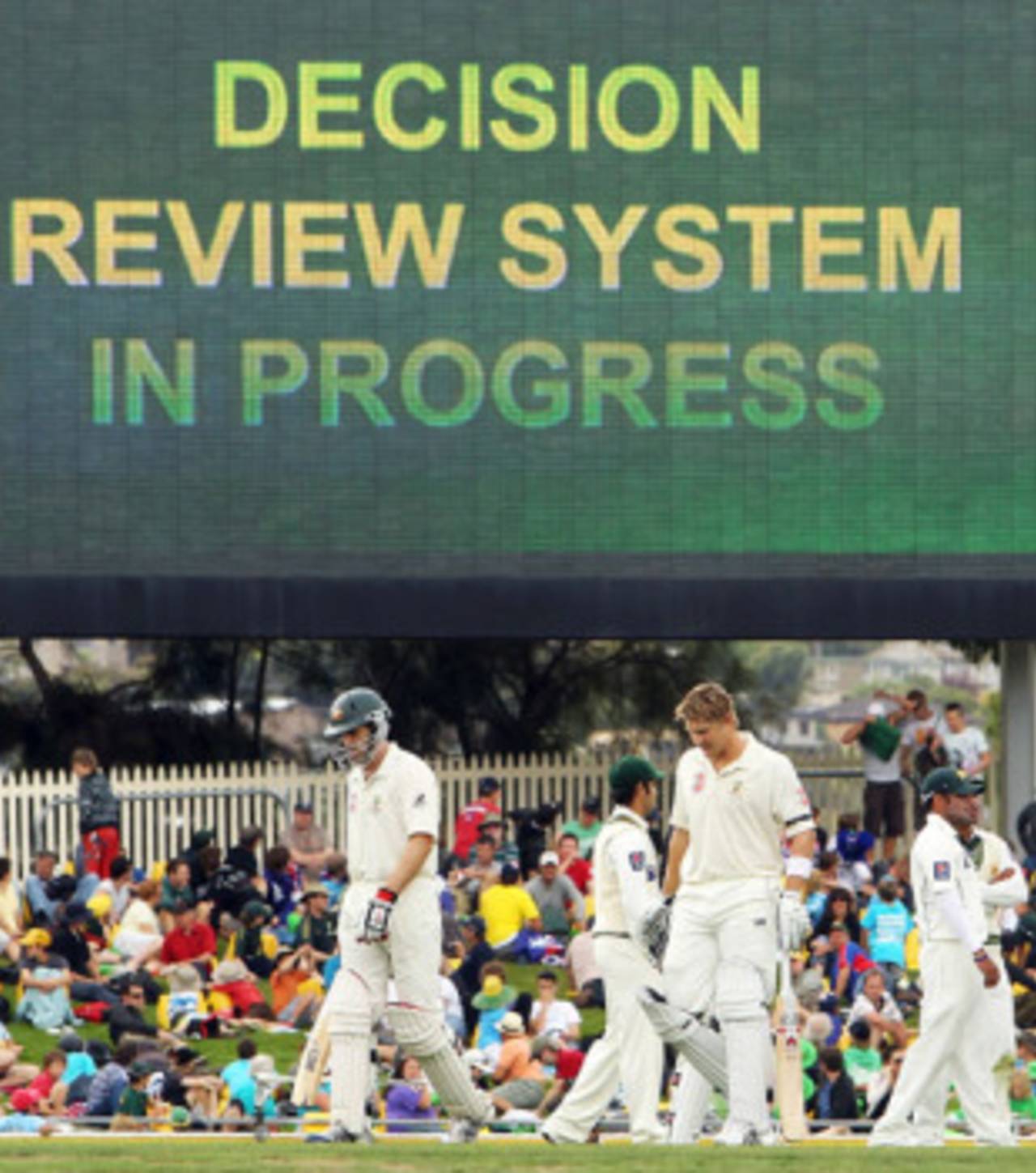Peter Willey, the former Test umpire and chairman of England's umpires' association, has severely criticised the Umpire Decision Review System (UDRS) and believes the use of technology will result in umpires losing their confidence. "I don't think UDRS is delivering what it is supposed to do," Willey told Cricinfo. "As far as I am concerned, I wouldn't use it at all. I would rather live with human fallibility.
"It's [UDRS] only going to be used in Test matches. So you've got seven or eight umpires and every time they put their finger up, thinking that they have made a correct decision, somebody refers it and gets it overturned. My worry is that if an umpire gets his decisions overturned a lot then he will lose his confidence, and he won't know what is a good decision is, and what is not a good decision. Eventually, he will probably be dropped from the elite panel.
"My opinion is that we just need to get back to letting the umpires umpire the game. Are we just using the referral system to keep the television people happy? It's a new thing for them to play with."
Willey, 60, officiated in 25 Tests and 34 ODIs between 1996 and 2003, and was never involved with the review system. He agreed though, that the use of technology was robbing the game of its charm and spontaneity, and at the same time pointed out how the players were at fault as well.
"You just got to have people out there who can count to six, and just make a decision. Out or not out, don't care if it's right or wrong. The players will refer it, and then they will be happy. It seems to me that as long as players are happy, that's all that matters. It doesn't matter about the two umpires in the middle who are doing an honest job, who make an honest mistake."
He said the need was to get back to "playing proper cricket" and accepting the on-field umpire's decision. "Well, over 100 years now the umpires have made the decisions, sometimes they are right, and sometimes they are wrong," Willey said. "Players have accepted it. In some of the games, the players have been given out by the referral system, and they have gone off the ground shaking their head. They [players] are never happy. Be it the umpire or the television, the player is never going to be happy."
My opinion is that we just need to get back to letting the umpires umpire the game. Are we just using the system to keep the television people happy? It's a new thing for them to play with
On the other technologies available, he said they should aid the UDRS. "If you are going to have a referral system then you need all the systems to work," Willey said. "The last series between England and South Africa did not have all the technology available. They did not have the Snicko or the Hot Spot, which are two very good things for caught-behinds and the other decisions."
However, he was doubtful about the accuracy of another well-known tool, the Hawk-Eye. "Everybody thinks that Hawk-Eye is 100%, but I don't think it is. It doesn't give a 100% true idea of where the ball is actually going to go. It's just a machine judging where the ball might go. If you get a pitch with uneven bounce, one ball can bounce a foot over the stumps, and another ball pitches in the same position and it might go along the ground."
On whether the on-field umpires should take help from the third umpire to make a decision when in doubt, to prevent reviews being wasted on key players, Willey said, "The only way to stop the argument is to have every decision reviewed by the third umpire. From what I understand, the players are only supposed to be given 20-30 seconds to make their mind up, to talk among themselves to decide whether they should call for it or not. Let's have an instant decision - shall we call for it or not. Or let's use it for every appeal, and the umpire in the middle just refers it to television.
"In that case, don't have the umpires in the middle. You have the experts in the box, the commentators, they can adjudge."
